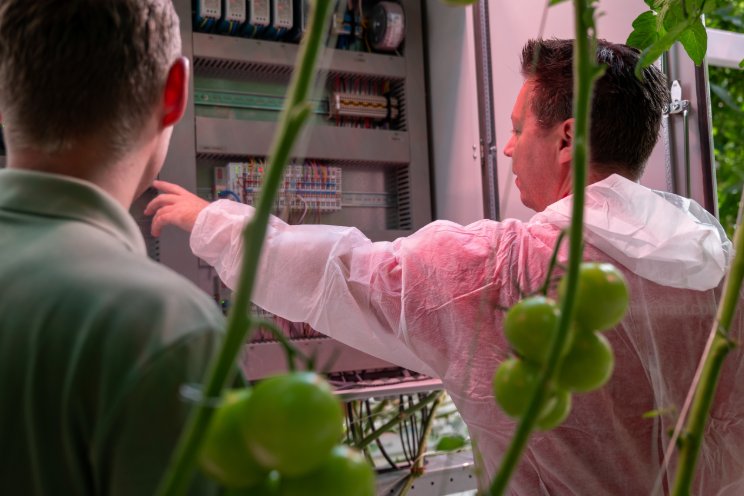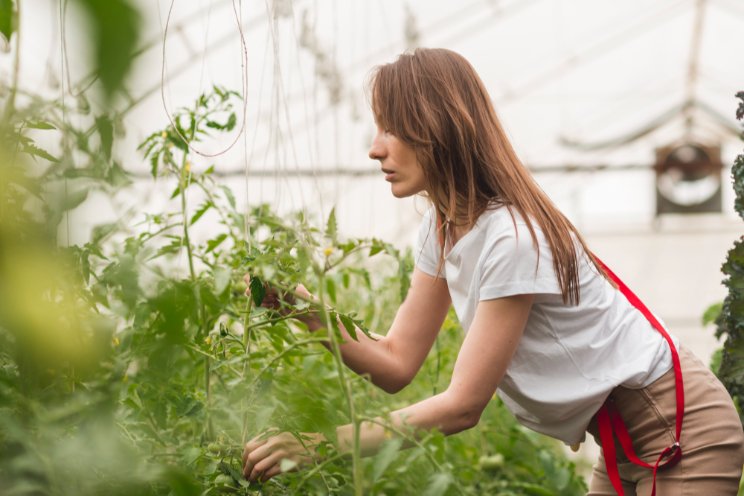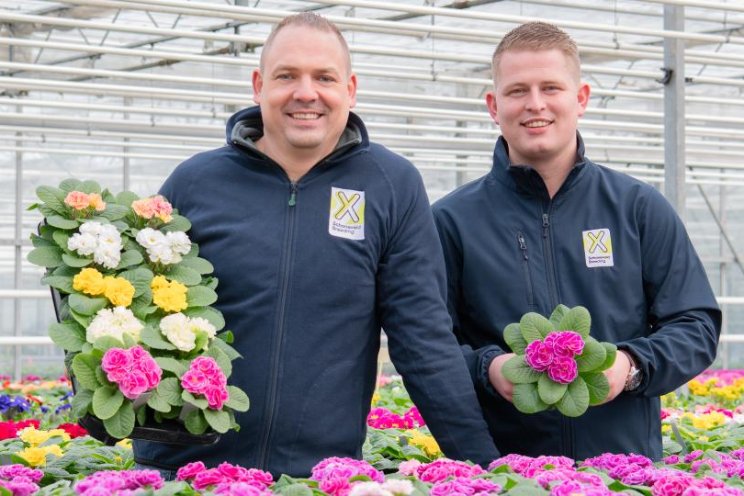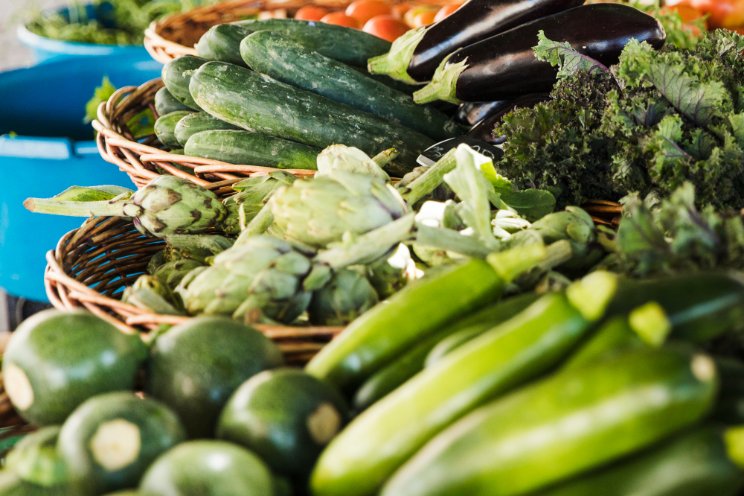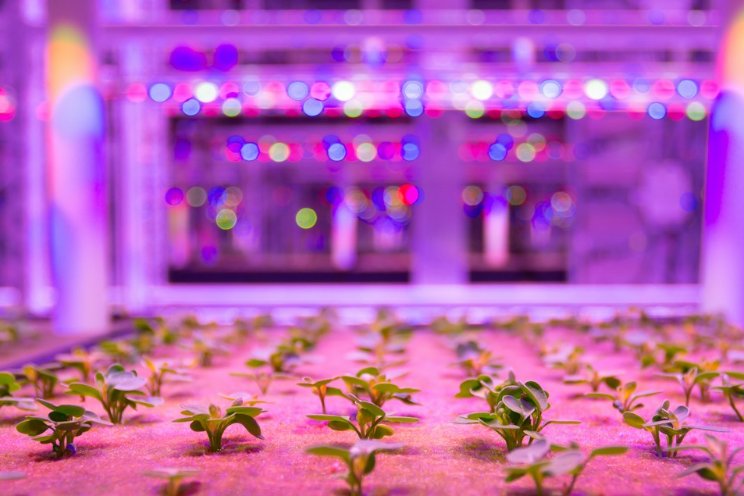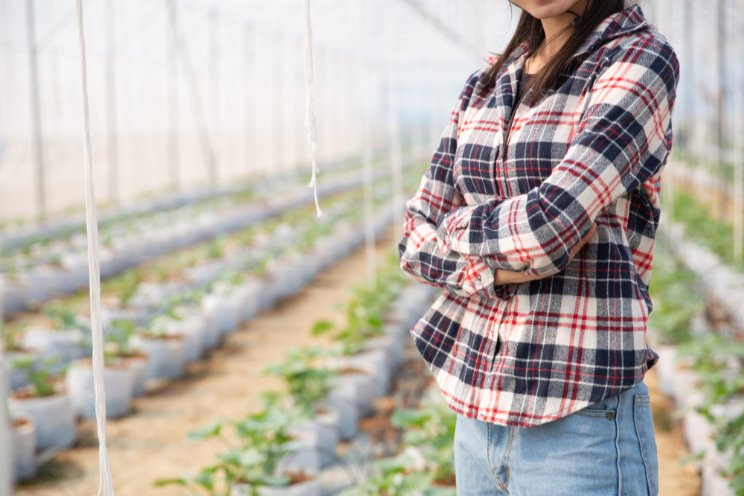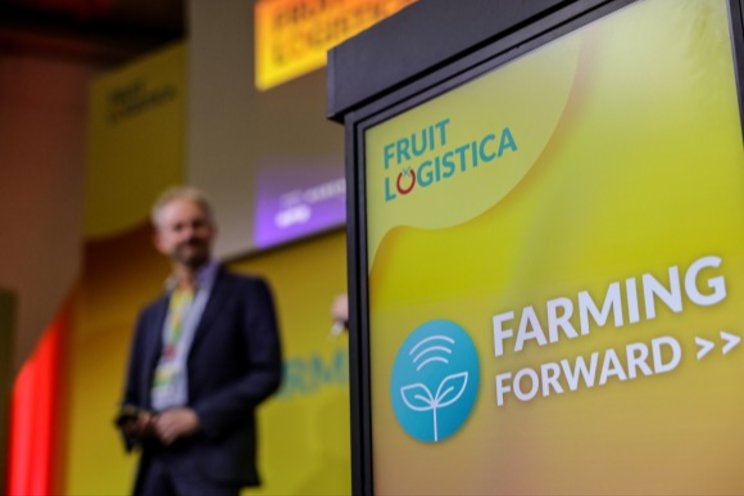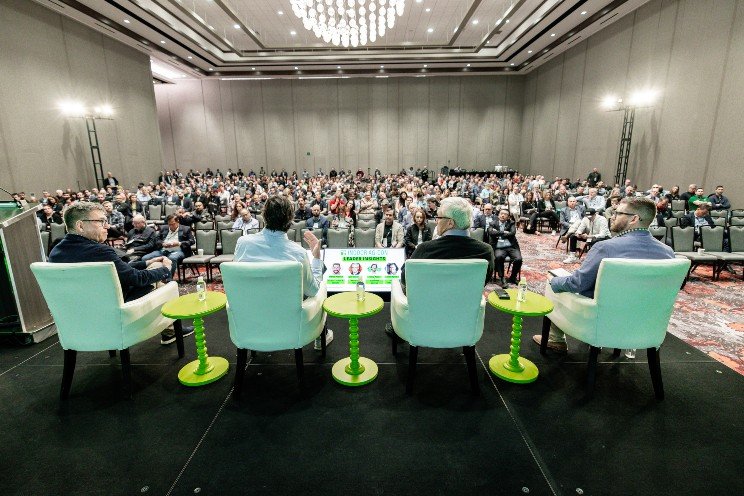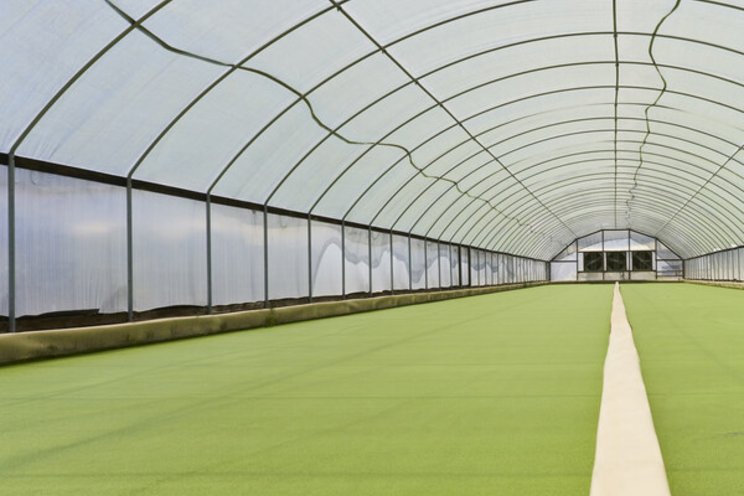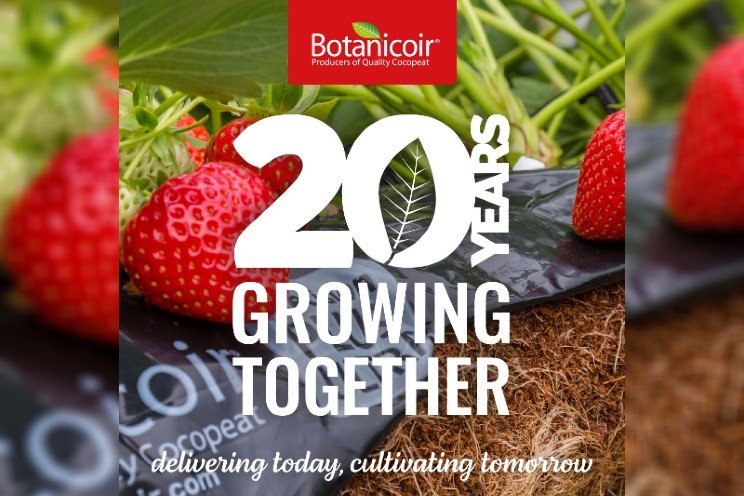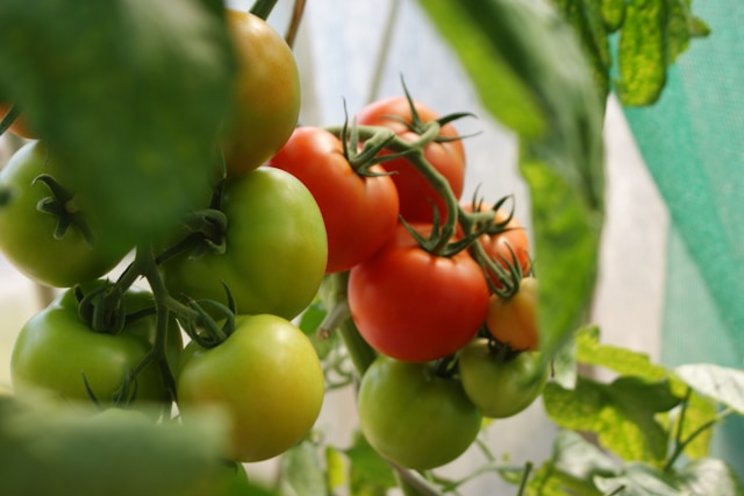Vertical farming brings tremendous efficiency
Added on 23 February 2021
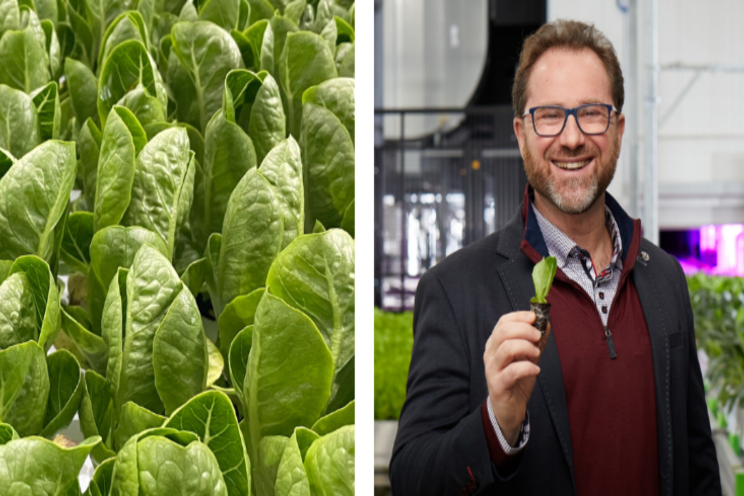
Mike Zelkind had been active in the food industry for decades with deep experience working with traditional farms and supply chains before founding 80 Acres Farms with Tisha Livingston. "The current food supply chains are very good, food is available everywhere, but the quality is not always as it should be. Food travels way too many miles, and it's not always sustainably grown." When Zelkind and Livingston sought to change how people eat, they wanted to bring high-tech greenhouses to North America. They went on a quest around the world, starting with the Netherlands, studying greenhouses. The "lightbulb" went on while visiting a greenhouse on the sunniest day in the middle of June. The white-washed greenhouse, blocking out the heat of the sunlight but still supplementing sunlight with artificial lights. "That's when we realized; greenhouses still have to add supplemental lighting, which requires capital and energy to run them, but heating and cooling those greenhouses isn't free, and you don't control the environment that well. You have no control over the microclimate, which means you can't control the plants' stress response and drive nutrition. We thought there has to be a better way."
In 2016, the vertical farming industry was starting to develop. 80 Acres built their first commercial farm and quickly realized that to scale the business into something meaningful, egoless collaboration was essential. They collaborated with companies such as Priva. "This resulted in an excellent relationship, which eventually led to the creation of Infinite Acres," says Zelkind. Priva, 80 Acres, and Ocado formed Infinite Acres in 2019 to scale vertical farming globally."
Next level of controlled environment
Zelkind would like to emphasize that he values all forms of agriculture and horticulture. "Let's be clear: I am very pro-farmer, in every way- the demand for fresh food for a rising population is crucial. Vertical Farms are expensive to build, but with much higher yields and drastically improved control to maximize nutrition, we can take farming to a whole new level. Farming is a tough job, and there are not that many top growers available worldwide. We thought we could do it differently and find a way to make it easier to get those good results consistently."
Six years ago, Zelkind knew the technology did not exist to scale vertical farming. "But the trends were moving in the right direction. Data science has become more prevalent and LED lights cheaper, automation was improving, sensors were improving, and crop science was advancing rapidly. With the right collaborative partners, 80 Acres Farms has built eight vertical farms since 2016. Their latest fully-automated farm is a culmination of their years of learning. "We wanted to grow significant commercial volumes with a broad range of produce- not just lettuce, but also tomatoes, cucumbers, strawberries, etc. We knew that once we could start growing these products in commercial volumes, it would become interesting for retailers. We want to offer a high-quality product at a reasonable price, not cheap, but at the right price. It is all about value." Zelkind concluded, "Serving the consumer is the core of 80 Acres Farms. Customers have spoken! They want; flavorful, clean, fresh, sustainably grown produce, with transparency- at a fair price."
Failure turned into success
It all sounds straightforward, but it isn't, says Zelkind. "To get where we are today, we had to keep going forward. At first, we designed and built all the technical installations, and we failed- but we kept testing and sharing knowledge with our partners. We were fortunate to have started with relatively small farms, making it possible to learn quickly. And over the years, failure turned into success." Zelkind continued, "We still have a long road ahead of us. If you compare this to a soccer match, we have only passed 15 minutes in the first half. On the other hand, two years ago, we weren't even on the field."
The food-growing process that takes place at 80 Acres Farms is not that different from traditional greenhouses, Zelkind says. "With vertical farming, it's all about controlling the micro-climate, and we can do that better than anyone else because of the patented climate technology developed by Infinite Acres." The consistent temperature, humidity, and airspeed customized for each crop. Advanced lighting controls allow 80 Acres Farms to deliver the exact spectrum and intensity of light for each crop and growing phase. 80 Acres Farms uses a proprietary interlaced network of vision and sensor technology to monitor all aspects of the growing environment to assure high quality and high yield growth. Intelligent fertigation systems infuse the right amount and type of nutrients at precisely the right time and free of harmful contaminants. "Through our Infinite Acres Collaboration, we are willing to sell those technologies and license those techniques because we want to bring that to the world. We can't scale up fast enough ourselves, so there is no reason to keep this knowledge from others."
Push the crops on command
After all, it's still crop science, Zelkind continues. "It's not just pure technology, but also about knowing how a plant grows, breathes, trans-evaporates, and uptakes nutrients. We believe that's where machine learning and data science come into play. With good technology, we can optimize CO2, root zone temperature, airflow, and all of these things to come up with the right recipe for every crop and grow at a very high level of efficiency. We can push those crops and stress those crops on command instead of randomly because of weather influences. We control the crops¬- so our plants grow differently. We can gain tremendous efficiency in our cultivation. We can use different techniques and recipes to make lettuce redder or to get more tomatoes on a tranche."
In a certain way, you could say 80 Acres Farms is reinventing horticulture. "We are getting the most out of the original genetics of the crops. Dutch greenhouses are the most efficient because the Netherlands has the right climate, and the temperature drops naturally. Dutch growers have learned how to grow the best crops possible within those natural environmental conditions. But the recipes are not necessarily the best for the plant's genetics; they are the best for optimizing those crops for those conditions. 80 Acres Farms doesn't have variable conditions. We can control how much the temperature has to drop. It's all about giving the crop what it needs. Can 80 Acres Farms' tomato taste completely different and sweeter? Absolutely! We can achieve that more easily and in a cheaper way. Once you have built the infrastructure, it doesn't cost anything to control that. Zelkind continues, "If you keep doing things the same way as you are doing today, vertical farming is way too expensive, but who says you have to do everything in the same way? We are doing it differently, and we are successful with that. For us, this is the future of horticulture."
Source and Photo Courtesy of Greentech
Source: Greentech
More news
